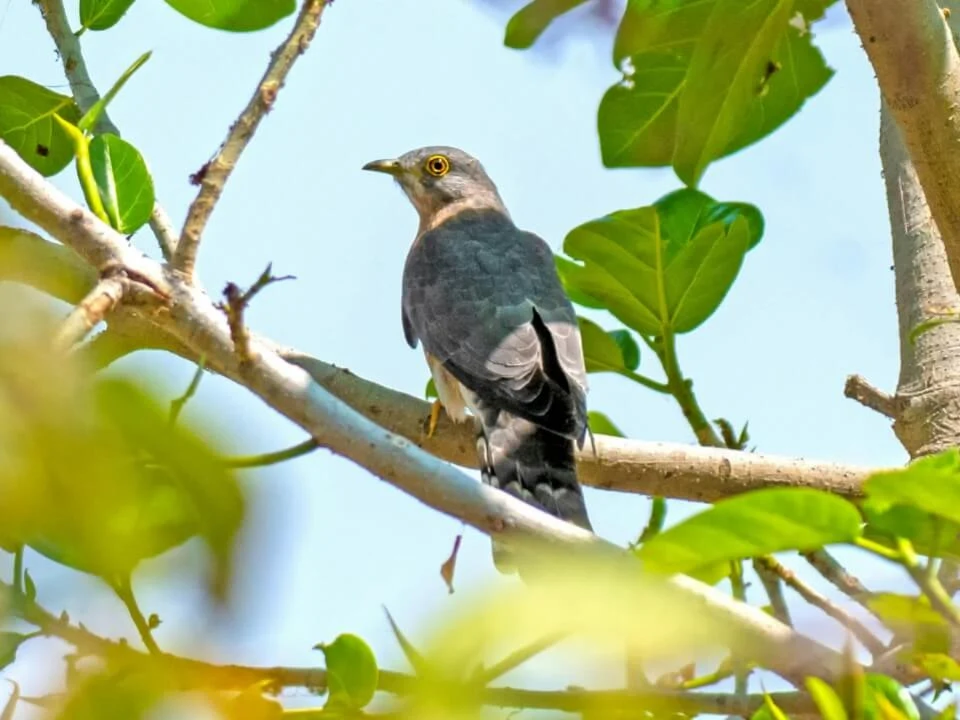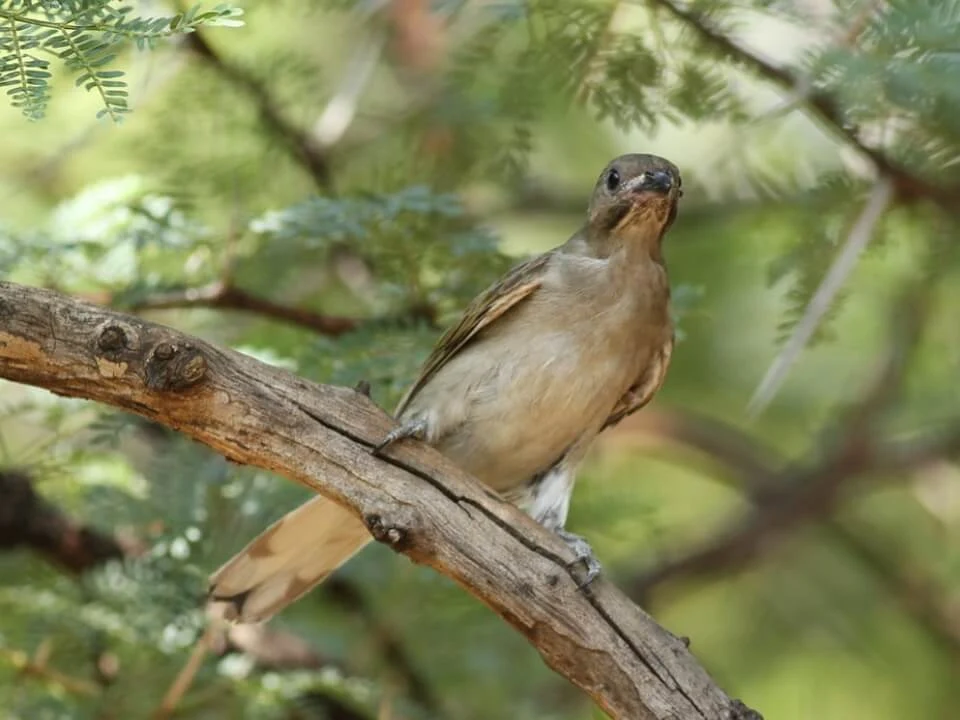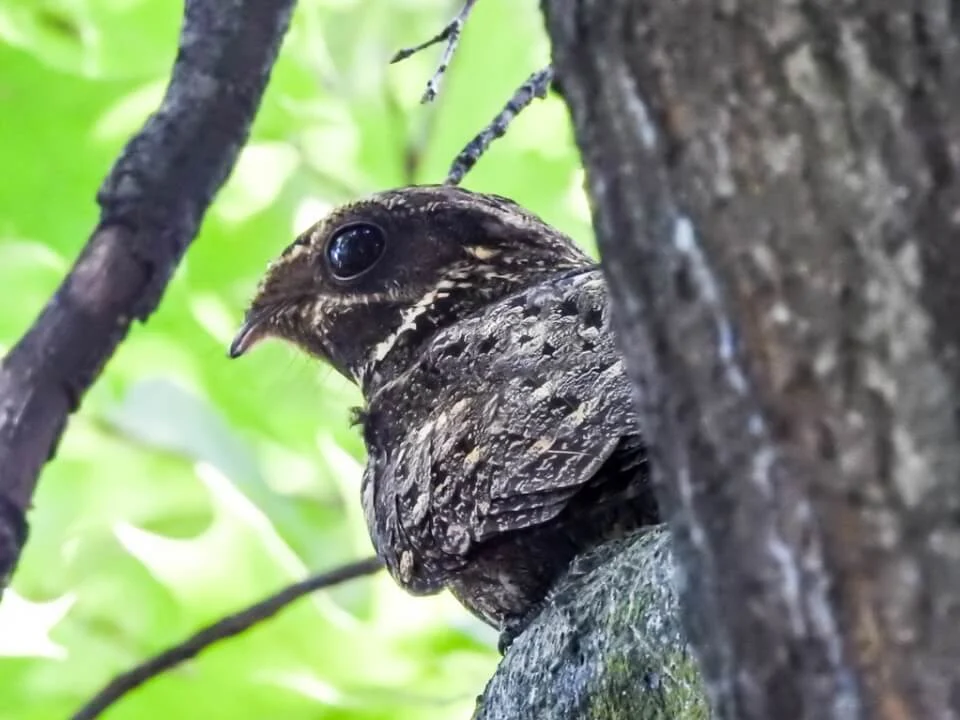 |
| 10 Bird Of The World |
10 Bird Of The World That Do Not Make Their Own Nests
We have seen beautiful nests of birds found in the world. But do you know that some birds found in the world do not make their own nests but lay eggs in the nests of other birds. Today we will introduce you to 10 birds of the world who do not make their own nests, there can be many reasons for this.
Most of the birds of the world can be seen building nests to keep their eggs and babies but some birds rely on other strategies. There are some birds of the world that lay their eggs on the ground while other birds lay their eggs in the thorns of tree branches and hidden places. Let's know about these birds, where they lay their eggs and how they raise their babies.
1. Cowbird
 |
| Cowbird |
The Brown-Headed Cowbird and the Bronzed Cowbird are both brood parasites and steal other birds' nests instead of building their own. Cowbirds lay their eggs in other birds' nests and will leave their young to be raised by other male and female birds.
Some bird experts speculate that cowbirds do this because they are nomadic and do not spend enough time in one place to care for a nest. These birds follow herds of bison or cattle as they move from one place to another. These birds choose nests that are located near the edges of the forest.
2. Cuckoo Finch
 |
| Cuckoo Finch |
Like cowbirds, cuckoo finches are brood parasites and use the nests of other birds for their babies. Cuckoo Finch mostly go for the nests of Tawny-flanked Prinia birds. But the Tawny-flanked Prinia bird has started to recognize their eggs and has developed the ability to kill them by pecking. Also, other birds like weavers make narrow entrances in their nests to catch cuckoos and parasites. Read :- Bali Myna | Interesting Facts About The Endangered Bird
3. Cuckoo
 |
| Cuckoo |
The cuckoo is a brood parasite. This parasite lays eggs in the nests of many different birds including the reed warbler. The cuckoo's babies in the nest behave aggressively towards the babies of other birds. Apart from this, the cuckoo's babies push other eggs out of the nest. Not only this, the cuckoo's baby throws the eggs and babies of the reed warbler bird out of the nest.
Cuckoo chicks will viciously attack Reed Warbler chicks if they hatch and will peck at the chicks with their sharp hooked beaks until they die. They do this when they are very young. The cuckoos will also convince the male and female birds to feed them even if they have killed their own chicks.
4. Lesser Honeyguide
 |
| Lesser Honeyguide |
Lesser Honeyguides lay their eggs in the nests of Barbets. Lesser Honeyguides may also lay their eggs in the nests of Kingfishers and Starlings. Little Honeyguide hatchlings with sharp hooked beaks and are ready to kill from the moment they hatch. They will attack other chicks in the nest if they get the chance. But some birds, such as the Black-collared Barbet, have come to recognise these birds and crush them before they have a chance to do harm.
5. Indigobird
 |
| Indigobird |
Indigobirds are brood parasites native to Africa and steal nests from Jameson Firefinches. Indigobirds will lay their eggs inside the nest and leave them for the firefinch to raise. Indigobird chicks also have markings inside their mouths to mimic the mouths of firefinches and these markings help the male and female birds to find the chicks' mouths while feeding in the dark.
6. Common Murre
 |
| Common Murre |
Common Murre: These birds are found living together in colonies of hundreds and are so crowded that there is no space for nests. Common Murre prefers to spend most of their time in the open sea. But Common Murre lays their eggs on the edges of rocks, i.e. directly on the ground.
To protect their eggs, the male and female birds stay together constantly to keep them safe from predators like crows and seagulls. The eggs of these birds are pointed in shape which prevents them from rolling off the edge of the rocks. Common Murre can be seen in the Atlantic and Pacific Ocean and North America, Europe and Russia.
7. White Tern
 |
| White Tern |
White Tern This bird lives in tropical areas and prefers to lay its eggs in the corners of trees and crevices of large branches. Because this bird lays its eggs without a nest, it is less likely to attract parasites. Parasites are common in colonies of seabirds such as White Terns but are not seen in large numbers in White Tern populations. Read- Magpie Bird Fun Facts About The Intelligent Bird
8. Common Potoo
 |
| Common Potoo |
Common Potoo This bird lays its eggs on broken tree branches. Common Potoo sits on the eggs and incubates them without making a nest. These birds are not good protectors of their eggs but they are experts in camouflage. Common Potoo does this to make camouflage easier because making its nest attracts the attention of predators.
9. Emperor Penguin
 |
| Emperor Penguin |
Emperor penguins are found in cold Antarctica and it is difficult to find materials made by artisans, so these birds are forced to resort to traditional methods. But the method of hatching of emperor penguins should be in any warm and wind-protected place.
In these birds, the female emperor penguin lays her egg on straight snow and later gives it to her male friend so that he sits on top of its remains. After that the male penguin keeps this egg in the same place for months until the chick grows up inside it. The male penguin gives it a warm shelter until the chick comes out of the egg.
10. Chalk-Wills-Widow
 |
| Chalk-Wills-Widow |
The Chalk-Wills-Willow bird is a nightjar bird found in North America and it prefers to lay its eggs on straight knots, pine needles or dirt instead of creatures. The Chalk-Wills-Willow lays its eggs in dense forest, on the edge of a clearing. The female chuck-willow bird is seen over her eggs and the male and female birds are well matched and the eggs are well matched.
The female chuck-willow bird uses the same piece of ground to lay her eggs year after year. But if a bird is involved, the female chuck-willow bird will move quite far. The birthing season of the chuck-willow can be seen throughout the southeastern United States and throughout southern Florida all year round.
